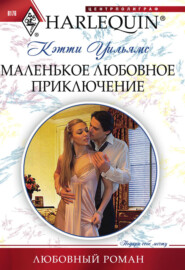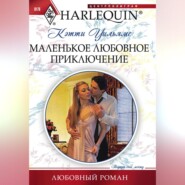По всем вопросам обращайтесь на: info@litportal.ru
(©) 2003-2025.
✖
Vengeful Seduction
Автор
Год написания книги
2018
Настройки чтения
Размер шрифта
Высота строк
Поля
‘Has Jeremy arrived yet?’ The question almost strangled her, but she kept right on smiling and looking happy.
‘Due shortly.’ Mrs Chandler started moving towards the door slowly. ‘Darling, I shall have to go and help your father. He’ll come and fetch you in a short while, when everything’s about to start.’ She paused by the door. ‘I’m so happy for you, my dear. I know we both said——’ she spoke carefully, seriously ‘—that we were a little disappointed that you didn’t finish your university education, but I’m sure, seeing you now, that it’s all for the best, and you knew what you were doing.’
She left and Isobel sat on the bed. Now that there was no one in the room, she felt free to stop smiling. She wished that her mother had not brought up the subject of university. She had had to swallow many bitter pills for this marriage, and that had been one of them.
She sighed, and across the room her eyes caught her image looking back at her from the full-length antique pine mirror in the corner of the room. Never mind the years slipping past; that didn’t worry her. What worried her was the prospect of the future hurtling towards her.
She slipped on her high, satin shoes. They felt uncomfortable. She was a tall girl and accustomed to wearing flat shoes, but this dress needed high ones. They completed the image, and there was no doubt that the image was a remarkably beautiful one.
Her mother had once told her, rather proudly, that she had been striking even as a baby, and Isobel had never had any reason to doubt that. She only had to look in the nearest mirror to see that those striking looks had never abandoned her.
Her waist-long hair was like finely spun silk, black silk; her skin was ivory-white and her features were perfect. From a very young child she had known admiration, and over the years she had become accustomed to it, even though she felt that her beauty had been a blessing, but in the end it was an irrelevance. Beauty, after all, was transitory, and sometimes, quite frankly, it could be a terrific disadvantage. It opened doors, but the reception waiting at the other end was not always the one you had hoped for.
She walked across to the window and stared down into the huge back garden which her parents had diligently cultivated ever since they had moved into the house. In a few years’ time they would have to get a gardener to help them out, or else convert some of the land into pasture, if that were possible, but of course they would defer that until the last possible moment. Her mother had been told at the onset of her illness that her condition would worsen, but Isobel knew that she would continue to tend her garden, lovingly if not as thoroughly.
From here she couldn’t see the arriving guests. They would be entering through the front door. Relatives, some of whom she had not seen for a long time; her university friends, who would probably gape and feel dwarfed by the dimensions of her parents’ house, because she had never let on just how wealthy her background was; and of course schoolfriends, hers and Jeremy’s, shared friends whom they had known from the year dot—just as they had known each other from the year dot.
She gazed down into the garden and attempted to speculate on their reactions to this marriage. Most, she supposed, would see it as a sort of natural conclusion, something expected, but some, her closest friends, had already expressed their horror at the match. She had always been the high achiever, the girl with everything, and they had told her, with varying degrees of tact, just how amazed they were that she was throwing it all away, throwing away a medical degree, for God’s sake, to settle down and get married. Naturally she had said nothing. How could she?
Her parents had been disappointed as well, even though they had taken great pains not to condemn her choice. The fact was that they had instilled in her from day one the importance of education, and they had been bewildered when she had arrived home six months previously, sat them down and tonelessly announced her decision to marry Jeremy Baker.
Their immediate concern was that she was pregnant, which, Isobel had thought at the time, had been the only amusing thing about the whole sorry affair.
‘It’s just that it’s all so sudden, darling,’ her mother had said, frowning and trying to make sense of the impossible. ‘I didn’t even think that you and Jeremy were that close. I thought…’
Isobel had known what she had thought, and she had cut in hurriedly, with some nonsense about deciding at last where her heart lay.
‘But can’t it wait?’ her father had asked in a concerned voice, and she hadn’t been able to meet his eyes.
‘We feel that this is the best way for us,’ she had mumbled, and later, when they had gently asked her about her medical degree, she had fudged and muttered something about blood and guts not really being up her street after all.
In the end, they had left it, and her mother had embarked on the wedding preparations with zeal.
Her father was an influential man in the community and strings had been pulled so that everything fell into place with the perfection of an event that could have taken years in the making. Nothing was too small or too great for their daughter, and from the sidelines Isobel had watched and choked back the sickening misery that had threatened to overwhelm her at every turn.
She was consulted on the design for the wedding-invitations, the serviettes, the colours of the flowers which hung in profusion downstairs in the marquee, every conceivable shade of yellow because, her mother had decided, spring was yellow and so the flowers would all represent spring. Frankly, winter would have been more appropriate but she had bitten back the caustic observation and gone along with the general flow.
She began pacing about the room, glancing at the reminders of her childhood which still clung here and there: adventure books which she had devoured in her youth, before biology texts became much more fascinating, a doll which she could remember being given to her as a birthday present from her parents when she was five, a picture of her family which she had done when she was four and which her parents had proudly framed—three figures with odd shapes and stick-like fingers. Her parents had been immensely proud of that picture, but in fact art had been just about the only thing that had eluded her. She had a mind more attuned to the logical.
Ironic, she thought now, that her life, which had been cheerfully pacing towards the most logical conclusion in the world—a degree in the subject she had adored, a career helping people—had petered out into the most irrational ending.
That made her think of Jeremy, and she swallowed down the bitter resentment rising up her throat.
In less than one hour’s time she would be his wife, and there was little point in constantly whipping herself with the insanity of it when there was nothing she could possibly do to remedy the situation.
She heard another knock on the door and stiffened in alarm. Surely not her father. Surely not yet. She looked at her watch, which showed that she still had at least forty-five minutes left of freedom, and said, ‘Yes? Come in!’
If was probably her mother with some detail that needed sorting out, or eIse Abigail, the least tactful but closest of her childhood friends, who would no doubt launch into another lecture on the stupidity of the marriage.
‘Fine,’ she had said when Isobel had told her about Jeremy. ‘Throw your life away on that worm! Throw away your hopes of being a doctor! And while you’re about it, why don’t you fling yourself under the nearest bus as well?’ Abigail was studying drama and had cultivated a theatrical way of talking. ‘I shall never mention another syllable on the subject again!’ But she had continued to expound on the theme whenever they had met, and Isobel assumed that she was about to recommence.
It wasn’t Abigail. It wasn’t her mother. It was the last person in the world she wanted to face, but face him she did, defiantly across the length of the room.
‘So,’ he said, strolling into the room and shutting the door behind him, ‘the bride is ready.’ His voice was sneering, his expression hard and contemptuous.
‘What are you doing here?’ Isobel asked. Her heart was beating quickly, making her feel giddy and deprived of air. He had always had this sort of dramatic effect on her, as if his presence threw her system into some weird kind of overdrive.
‘Didn’t you think that I’d turn up?’ Lorenzo smiled humourlessly. ‘Why, Isobel, my dearest, I’m the best man.’
‘Yes.’ She licked her dry lips. ‘But you should be downstairs, with everyone else.’
What she really meant was that he should be anywhere else, but not here, not in her room. She couldn’t bear this game of cruelty he had played ever since he had found out about Jeremy, even though she could understand it.
‘I never thought you’d do it,’ he bit out, advancing towards her. ‘When you told me five months ago what you were planning, I thought that it was a joke, some kind of mad joke.’
‘No joke, Lorenzo.’
His hands shot out, grasping her arms, and she winced in pain.
‘Why? Why, damn you!’
‘I told you…’
‘You told me nothing!’ He flung her away and walked towards the dressing-table, resting on it with clenched fists.
Isobel followed him, stared at his back, the downbent head, and struggled not to put her arms around him.
Presently he turned around and faced her, his face dark and savage.
‘Why are you doing this, Isobel? You’re not in love with Jeremy Baker.’ There was a sneer in his voice and she answered quickly, to avoid the subject of love.
‘How can you speak about him in that tone of voice? I thought he was your friend!’
‘We both know him,’ Lorenzo bit out. ‘He’s unstable, reckless. You told me so yourself. Wasn’t that one of the reasons that you stopped seeing him, even as a friend, after he went to work for your father? He frightened you. You were glad to be at university.’
‘You frighten me too,’ she said, ‘when you’re like this.’ They stared at each other. He was furious and his fury, she knew, was given edge by his frustrated bewilderment at the situation. She looked at him, at the whip-hard strength of his body, the dark, sexy good looks which had turned every girl’s head at school when he had joined years ago. He had only been sixteen at the time, but already his face had held promise of the powerfully striking man he was to become.
‘I am trying to be reasonable, Isobel,’ he said in a voice that didn’t sound reasonable at all. ‘I am trying to work out whether there’s something here I’m missing or whether you need to be carted off to the nearest asylum in a strait-jacket.’
His eyes narrowed on her, curiously light eyes that were especially striking given the darkness of his hair and the olive tint of his skin. He was Italian, the son of emigrants who had settled in England, choosing their spot carefully so that their brilliant and gifted only son could be sent to one of the finest private schools in the country. He had easily gained a place on a scholarship and had landed among the students, bright enough but mostly with rich backgrounds, like a leopard in a flock of sheep.
He was different from them all, and he had never seemed to give a damn. He hadn’t needed to. His brains were enough to guarantee respect. At sixteen, he possessed a formidable intellect that, it was whispered, outranked some of the professors. His mind was brilliant and creative, and his drive to succeed was formidable. Nothing since had changed.
‘I know what I’m doing, Lorenzo,’ she whispered, looking away to her hands which were clasped in front of her.
‘You damn well don’t!’ he roared, and she glanced nervously at him and then at the door.
‘You’ll bring everyone rushing up to see what’s going on!’

















